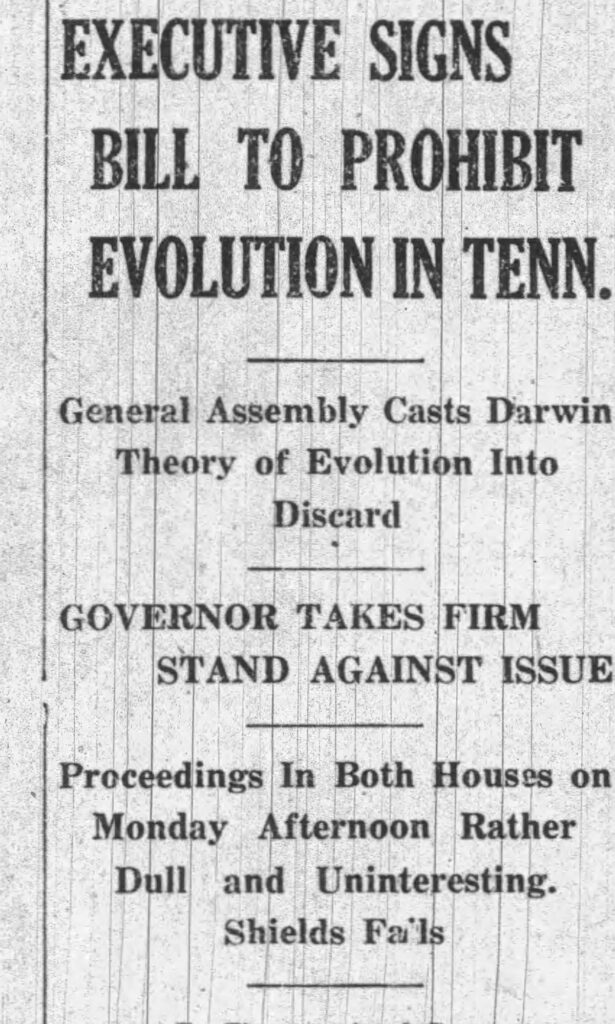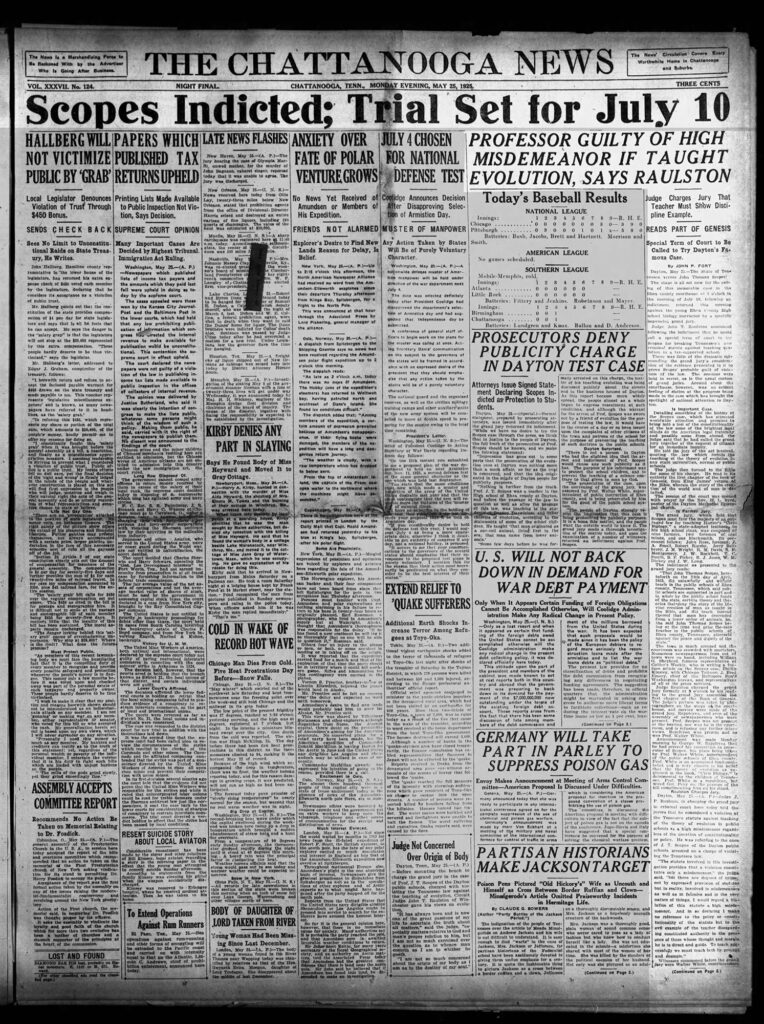The Scopes Trial, often dubbed the “Scopes Monkey Trial,” stands as one of the most iconic legal battles in American history. This 1925 courtroom showdown wasn’t just about a high school teacher and a science lesson—it became a pivotal moment in the clash between modern science and traditional beliefs. But what exactly transpired during this trial, and why does it continue to resonate a century later? Let’s dive into the nuts and bolts of the Scopes Trial and explore its enduring legacy

What Happened?
The Backdrop: Tennessee and the Butler Act
In the early 20th century, America was a nation grappling with rapid modernization. Urbanization, technological advancements, and evolving social norms were challenging long-held beliefs. Amidst this transformation, Tennessee enacted the Butler Act in 1925, a state law prohibiting the teaching of human evolution in any state-funded school. The act was a clear stand against the burgeoning acceptance of Darwinian theory, reflecting the tension between science and religion.
Enter John T. Scopes
John T. Scopes, a 24-year-old high school science teacher in Dayton, Tennessee, became the unlikely figure at the center of this controversy. Though his actual adherence to evolutionary theory was questionable, Scopes agreed to be the plaintiff in a test case challenging the Butler Act. His defense attorney, famed lawyer Clarence Darrow, saw an opportunity to challenge the law’s constitutionality and ignite a national conversation.

The Trial Unfolds
The Scopes Trial commenced on July 10, 1925, in Dayton’s Rhea County Courthouse. It quickly attracted national attention, transforming the small town into a media frenzy. The prosecution was led by William Jennings Bryan, a three-time Democratic presidential candidate and a staunch advocate of Christian fundamentalism.
Opening Statements: Bryan argued that the Butler Act protected the moral fabric of society by preventing the erosion of religious values through the teaching of evolution.
Defense Strategy: Darrow aimed to challenge the law’s validity, questioning the constitutionality of banning academic freedom and promoting critical thinking.
Famous Exchange: The trial is perhaps best remembered for the dramatic confrontation between Darrow and Bryan. When Darrow pressed Bryan on his literal interpretation of the Bible, Bryan reportedly called Darrow a “half-wit,” underscoring the deep ideological divide.
Verdict and Aftermath: Scopes was found guilty and fined $100, though the verdict was later overturned on a technicality. The trial did not resolve the debate but rather highlighted the deep-seated conflicts within American society.
Why Are We Still Talking About It?
A Landmark in the Science vs. Religion Debate
The Scopes Trial epitomized the enduring struggle between scientific inquiry and religious belief. This clash remains relevant today, manifesting in ongoing debates over topics like climate change, stem cell research, and the teaching of evolution versus intelligent design in schools. The trial serves as a historical reference point for these discussions, illustrating the complexities of balancing empirical evidence with personal faith.
Impact on American Education and Law
The Scopes Trial had significant implications for educational policies and legal standards in the United States. Although the Butler Act remained in effect until 1967, the trial spurred a broader movement advocating for academic freedom and the separation of church and state in educational curricula. It underscored the importance of critical thinking and the need to base education on scientific evidence rather than doctrinal belief.
Cultural Resonance and Media Representation
The trial has been immortalized in literature, theater, and film, most notably in the play and subsequent movie Inherit the Wind. These adaptations have cemented the Scopes Trial in the public consciousness, often symbolizing the fight against censorship and the defense of intellectual freedom. By portraying the trial’s dramatic moments, these works keep the conversation alive, allowing each generation to interpret its significance anew.
Lessons in Legal Strategy and Public Opinion
The Scopes Trial also offers valuable insights into the interplay between law and public sentiment. It demonstrated how legal cases could become national spectacles, influencing and reflecting societal values. Lawyers and strategists study the trial to understand how framing arguments and public perception can shape legal outcomes, a lesson applicable in today’s highly mediated judicial processes.
The Ongoing Evolution of Scientific Understanding
As our scientific knowledge expands, the questions raised during the Scopes Trial continue to evolve. Topics like genetic engineering, artificial intelligence, and space exploration present new frontiers where science and ethics intersect. The trial’s legacy encourages ongoing dialogue about how society integrates scientific advancements with moral and ethical considerations.